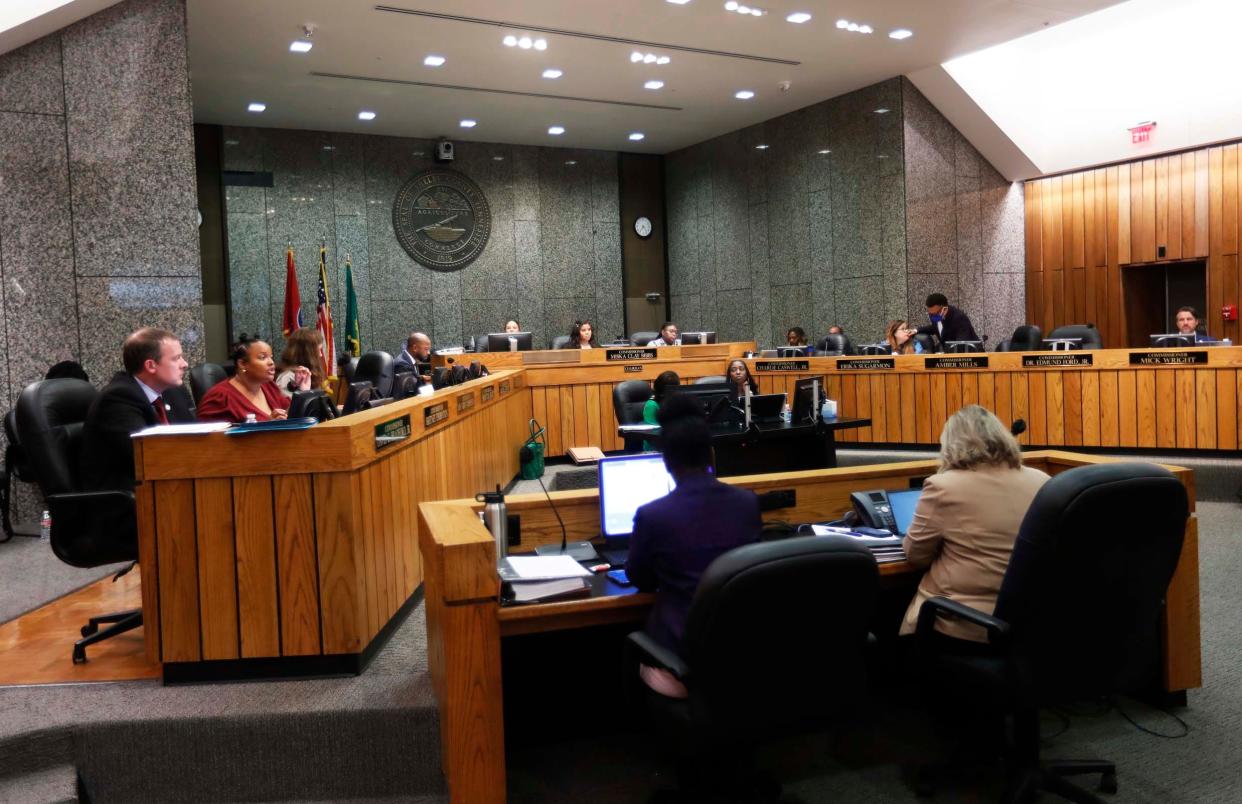MLGW chief tells Shelby commissioners utility is 'well positioned' for winter season

Editor's note: This story has been updated with the correct spelling of Doug McGowen's name.
Shelby County and Memphis are currently "well positioned" for the upcoming winter season, MLGW CEO Doug McGowen told commissioners Wednesday afternoon. McGowen gave a presentation to the Shelby County Board of Commissioners during their bi-weekly committee meetings.
McGowen went through the utility's three main systems — water, gas and electricity — and noted that Memphis Light Gas and Water received a 98% score from the Tennessee Department Environment and Conservation biennial sanitary survey. In addition to the high score from TDEC, McGowen said that Memphis has the best drinking water in the nation according to the Environmental Protection Agency.
The state of the gas system also has some of the lowest rates in the nation. McGowen said this is because MLGW sells unused or unneeded stored gas to areas of the county that need it.
"We're one of the few utilities that has that and we have realized about $2.3 million of what you would call profit. It goes right back into the company each and every year by selling gas to commercial users," McGowen said.
While both the gas and water systems are some of the best in the nation, McGowen said that the electrical system needs work in order to meet MLGW's standards.
"We deliver power to our commercial and residential customers 99.93% of the time because we produce 263 billion customer minutes of electricity every year," McGowen said. "But that point zero 6% of the time gets everybody's attention and is certainly not meeting our standards because we're supposed to be 99.95% which is kind of the industry standard for the southeastern part of the United States."
Currently, the outdated infrastructure has caused the electrical grid to fail continually. McGowen said reinvesting into the infrastructure will be able to make the system more reliable for customers. MLGW is proposing a 4% rate increase every year for a three-year period to invest into the underfunded infrastructure McGowen said.
"We have significantly underfunded investments, regular recurring investments in our election system since back in the 1980s," McGowen said. "... We've had effectively one rate increase, one electric rate increase in 35 years and two rate decreases during that same period of time."
In order to make the electrical grid more reliable, McGowen said that they need to make strategic investments into multiple things that impact reliability. Tree trimming, replacing outdated infrastructure and modernizing the grid is the "three-pronged approach" McGowen said, to increase reliability.
The state of tree trimming is looking good, according to McGowen, as MLGW contractors are currently ahead of schedule. The tree trimming has become a priority to MLGW since summer storms caused trees limbs to fall and create massive power outages, and it was revealed by McGowen that the utility is behind three years on tree trimming.
Outdated infrastructure also led to the massive power outages during the spring and summer storms, McGowen said. Replacing substation transformers, wood poles and underground cables are some things MLGW is targeting with infrastructure upgrades.
The underground cables also factored into the power outages, McGowen said. The cables were installed in 70s, and have begun to fail due to age of the cables.
"Those of you who are served by underground power building is not 100% reliable over time those cables degrade and actually do start to fail," McGowen said.
Modernizing the grid includes installing approximately 300 distribution automation devices. McGowen said that if the grid was modernized with distribution automation devices, thousands of people would not have lost power during the rush hour summer storm on July 18th.
"The net result is 96,000 less people would have lost power if we had this modern grid in place. The other folks that would have lost power were those directly affected by tree branches on the power lines in their neighborhoods," McGowen said.
McGowen finished off his presentation with giving an update with the LED streetlight work that the utility has done. Starting back in January, MLGW is set to be complete with the replacements by the end of the year McGowen said.
Commissioner Michael Whaley questioned McGowen about the "stroke-ing out" LED lights that his constituents have reported to him. Since MLGW has started to convert the streetlights to LED, there have been reports of streetlights blinking on and off rapidly. Whaley said he was told they could be monitored and reported remotely.
McGowen said the issue with "stroke-ing" LED streetlights should be corrected by the end of the year.
Brooke Muckerman covers Shelby County Government for The Commercial Appeal. She can be reached at (901) 484-6225, [email protected] and followed on X @BrookeMuckerman.
This article originally appeared on Memphis Commercial Appeal: Memphis Light Gas & Water utility 'well positioned' for winter season
